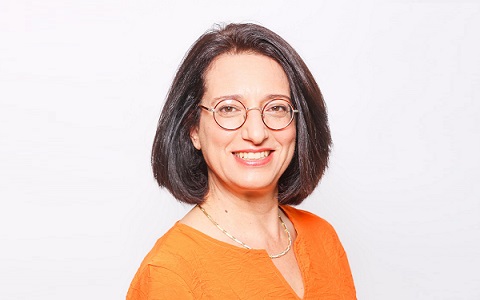Healthcare with Confidence
Breast Cancer: Diagnosis and Treatment in Israel
Breast cancer is the most common form of cancer among women worldwide. It typically develops in the cells lining the milk ducts (ductal carcinoma) or in the milk-producing lobules (lobular carcinoma). Early detection significantly improves treatment outcomes, especially in non-invasive forms of the disease such as ductal carcinoma in situ (DCIS).
When breast cancer is detected early, treatment is often highly effective. However, even in more advanced cases—such as metastatic breast cancer—there are still many treatment options available. Our doctors have extensive experience in successfully managing and treating metastatic disease using the latest therapies and personalized approaches.
That’s why it’s important to seek medical advice promptly. Our experienced specialists are here to provide accurate diagnosis and personalized treatment options tailored to your needs.
Breast Cancer Care and Survival in Israel
According to the Israeli Ministry of Health, Israel has one of the highest five-year survival rates for breast cancer, thanks to its advanced healthcare system and early detection programs. The five-year relative survival rate compares the likelihood of survival for people with breast cancer to that of the general population of the same age and sex.
Israel is a global leader in oncology care. Patients from around the world come to Israel for:
- Second opinions from leading oncologists and Consultation Online
- Access to advanced diagnostic tools such as PET-CT, MRI, and molecular testing
- Innovative treatments, including personalized medicine, immunotherapy, targeted therapies, and minimally invasive surgery
International Patient Services
If you or a loved one has been diagnosed with breast cancer, we are here to help—regardless of the stage of the disease or tumor location.
We offer:
- Fast appointment scheduling with top breast cancer specialists in Israel
- Care coordination by a dedicated medical team
- A clear, personalized diagnostic and treatment plan, prepared in advance before you arrive in Israel
- Treatment at leading cancer centers with state-of-the-art technologies and compassionate care
Our goal is to ensure that every patient receives expert care with minimal delays. You will be seen by a physician who specializes in your condition and heads a specialized department at one of Israel’s top hospitals. Below you will see a list of leading Israeli medical experts for breast cancer treatment.
Contact us today to learn more about your options and to begin your journey toward recovery with the support of Israel’s world-renowned cancer care system.
Types of Breast Cancer
- Ductal Carcinoma In Situ (DCIS): A non-invasive form of cancer confined to the milk ducts.
- Invasive Ductal Carcinoma (IDC): The most common type, which begins in the ducts and spreads to surrounding tissue.
- Invasive Lobular Carcinoma (ILC): A less common form that begins in the milk-producing lobules and can spread to nearby tissues.
- Triple-Negative Breast Cancer (TNBC): A more aggressive type of cancer that lacks certain hormone receptors, making it more challenging to treat.
- Paget’s Disease of the Breast: A rare form affecting the skin of the nipple and often associated with underlying breast cancer.
One of the Leading breast cancer doctors in Israel
 Dr. Noa Efrat Ben Baruch – Expert in advanced breast cancer treatment and HER2 mutations. Former Director of the Oncology Institute at Kaplan Medical Center in Rehovot Doctor Consultation Online
Dr. Noa Efrat Ben Baruch – Expert in advanced breast cancer treatment and HER2 mutations. Former Director of the Oncology Institute at Kaplan Medical Center in Rehovot Doctor Consultation Online Prof. Tamar Safra – Head of Onco-Gynecology Unit and Breast Cancer Unit.
Prof. Tamar Safra – Head of Onco-Gynecology Unit and Breast Cancer Unit.Lis Hospital for Maternity and Women, Oncology Department, Sourasky Medical Center (Ichilov).
Doctor Consultation Online
ALL Doctors for Breast Cancer Treatment
Comprehensive Breast Cancer Second Opinions in Israel
In addition to a consultation with a leading Israeli oncologist, we also offer a full range of second opinion services to support accurate diagnosis and effective treatment planning:
- Breast Cancer Biopsy Second Opinion
Our expert pathologists can re-evaluate your biopsy slides to confirm or clarify the diagnosis. The tissue samples are reviewed under a microscope in an advanced Israeli laboratory. You will receive a detailed second opinion pathology report based on this thorough re-examination. - Breast Imaging Second Opinion
If you have had imaging studies such as a mammogram, ultrasound, MRI, PET, or CT scan, our experienced radiologists can review your images and provide a second opinion. This can be especially valuable if there are uncertainties in your original report.
Receiving a second opinion from highly trained specialists can offer peace of mind and often provides critical insights that may influence your treatment plan. It ensures that every detail has been carefully reviewed and that you are making the most informed decisions possible regarding your care.
Breast Cancer Screening in Israel
- Blood test (including tumor marker Ca 15-3).
- Mammography and breast ultrasound.
- Biopsy tumor tissue and study it for cancer cells. Needle aspiration FNA – fine needle is inserted into the tumor in the breast, and from there a small sample of tissue is removed. The entire procedure is performed under ultrasound. Likewise performed biopsy of nearby lymph nodes (axilla).
- PET Scan – body scan for detecting metastatic invasive disease.
- Oncotype DX test are used to determine the risk of distant metastases in patients with locally invasive breast cancer, which is with stage 1 – stage 3 breast cancer, estrogen positive / or progesterone positive and HER2 negative breast cancer. Molecular tests provides the oncologist with information that allows to cancel chemotherapy in addition to hormone therapy.
Pathology Examination: Key to Personalized Breast Cancer Treatment
A pathology review of the removed tumor is one of the most important steps in determining the most effective treatment plan for breast cancer. After surgery or biopsy, an experienced Israeli pathologist examines the tissue sample under a microscope to provide a detailed analysis. This information plays a critical role in tailoring the right medical therapy for each individual.
During the pathology examination, the following key details are assessed:
- Type of Tumor
The pathologist determines whether the cancer is invasive (has spread into surrounding breast tissue) or non-invasive (confined within the ducts or lobules).- Invasive Ductal Carcinoma (IDC) – the most common form
- Invasive Lobular Carcinoma (ILC)
Subtypes of IDC may include: Cribriform carcinoma. Metaplastic carcinoma. Medullary carcinoma. Mucinous carcinoma. Papillary carcinoma. Tubular carcinoma
- Tumor Size
The size of the tumor helps guide treatment decisions and assess the stage of the disease. - Nottingham Grade
This grading system evaluates how aggressive the cancer cells look under the microscope. - Tumor Necrosis
The presence of dead cells inside the tumor, which may be associated with more aggressive disease. - Tumor Margins
Indicates whether the tumor was completely removed or if cancer cells are present at the edges of the removed tissue. - Lymphovascular Invasion
Shows whether cancer cells have entered the blood vessels or lymphatic system, which may indicate a higher risk of spread. - Lymph Node Status
Identifies whether cancer has spread to the lymph nodes, which is an important factor in staging. - Hormone Receptor Status
The cancer cells are tested for estrogen and progesterone receptors:- Triple-positive breast cancer: Estrogen receptor (ER), progesterone receptor (PR), and HER2 positive
- Hormone receptor positive / HER2 negative
- Triple-negative breast cancer (TNBC): ER, PR, and HER2 negative – often a more aggressive form
- Cell Growth Rate (Ki-67)
This marker indicates how quickly the cancer cells are dividing and can guide treatment intensity. - BRCA Gene Mutation Status
Testing for BRCA1 and BRCA2 mutations helps assess hereditary risk and may influence treatment and prevention strategies. - Cancer Stage
The stage of the disease combines tumor size, lymph node involvement, and presence of metastasis. Staging helps doctors plan treatment and estimate the risk of recurrence.
Stages of Breast cancer
Stage 0 breast cancer – The tumor is not invasive and is limited by a thin membrane called local carcinoma (in situ), for example non-invasive type (DCIS – Ductal Carcinoma In Situ). This tumor does not metastasize and does not involve lymph nodes. Stage 1 breast cancer – A cancerous growth of up to 2 cm in diameter that extends beyond the tubular boundaries, invaded the breast tissue, but did not spread to lymph nodes or out of the breast. A tumor at this stage is also called an infiltrating or invasive tumor. Stage 2 breast cancer Stage 2a – one of the following can take place:
- There is no breast tumor, but there is a cancerous growth of 2 mm or more in 3 lymph nodes in the armpit or near the sternum.
- Tumor size 2 cm or less west 3-1 lymph nodes in the armpit.
- Or a tumor 2 to 5 cm in diameter that did not spread to the lymph nodes.
Stage 2b – one of the following can take place:
- Tumor 2 to 5 cm in diameter west of lymph nodes in the armpit or near the sternum.
- Tumor over 5 cm in diameter, which does not involve lymph nodes.
Stage 3 breast cancer – Divided into two sub-steps: Stage 3a – one of the following can take place:
- Invasive tumor up to 5 cm in diameter, west of lymph nodes fixed in the armpit, or attached to each other.
- An ingrown tumor over 5 cm in diameter, west of the lymph nodes in the armpit on the same side, which can be moved.
Stage 3b – one of the following can take place:
- A tumor, of any diameter, that has spread to the tissues surrounding the breast (chest wall or skin), including the ribs and chest muscles.
- Inflammatory breast cancer – a rare type, classified as a stage 3 cancerous growth.
Stage 3C – the presence of a tumor of any diameter that has spread to at least 10 lymph nodes in the armpit; or at least to one lymph node in the armpit and one below the sternum; or spread to at least one lymph node below or above the clavicle. Stage 4 breast cancer – there are cancerous growths in the breast that have metastasized to other organs in the body, such as the bones, lungs, liver or brain. It is advanced or metastatic disease.
Breast Cancer Treatment in Israel
Israel is internationally recognized for its advanced and multidisciplinary approach to breast cancer care. Treatment options are selected based on the type and stage of cancer, tumor characteristics, and individual patient factors. Below is an overview of the main treatment methods available in Israel:
Surgical Treatment for Breast Cancer
Surgery remains one of the primary treatments for breast cancer and is often combined with other therapies such as radiation, chemotherapy, or hormonal therapy.
Types of surgery include:
- Lumpectomy / Quadrantectomy (Breast-Conserving Surgery):
These procedures remove the malignant tumor while preserving most of the breast. Sometimes a larger segment of the breast (a quadrant) is removed depending on tumor location. - Mastectomy:
Involves removal of the entire breast and, in some cases, nearby lymph nodes. Reconstruction surgery may be performed immediately or at a later stage to restore the breast’s appearance.
The choice of surgery depends on factors such as tumor size, location, stage of cancer, and patient preferences. Studies show that breast-conserving surgery followed by radiation therapy offers outcomes comparable to mastectomy in early-stage breast cancer.
Radiation Therapy
Radiation therapy uses high-energy X-rays or electron beams to destroy cancer cells and reduce the risk of recurrence.
- Treatment typically lasts from five days to several weeks.
- A CT simulation is performed before treatment to create a personalized radiation plan.
- For breast-conserving surgeries, radiation is applied to the remaining breast tissue.
- After a mastectomy, radiation is directed at the chest wall.
- Radiation may also target underarm lymph nodes if there’s a risk of cancer spread.
This treatment is precisely planned to minimize side effects and protect healthy tissue.
Chemotherapy
Chemotherapy uses anti-cancer (cytotoxic) drugs to destroy cancer cells throughout the body.
- Adjuvant chemotherapy: Administered after surgery to eliminate any remaining cancer cells.
- Neoadjuvant chemotherapy: Given before surgery to shrink the tumor and increase the chances of breast-conserving surgery.
- In cases of advanced or metastatic breast cancer, chemotherapy can help reduce tumor size, relieve symptoms, and significantly improve quality of life—even when a cure is not possible.
Hormone (Endocrine) Therapy
Hormone therapy is used for hormone receptor-positive breast cancers to lower estrogen and progesterone levels or block their effect on cancer cells.
- Suitable for both premenopausal and postmenopausal women.
- May be used alone or in combination with surgery, chemotherapy, or radiation.
- Not effective for hormone receptor-negative tumors.
The specific hormone therapy prescribed depends on the stage of cancer, hormone receptor status, age, menopausal status, and previous treatments.
Targeted (Biological) Therapy
Targeted therapies, also known as biological therapies, are designed to block specific molecules involved in the growth and survival of cancer cells.
- These drugs act specifically on cancer-related genetic changes, helping to shrink tumors and prevent progression.
- Unlike chemotherapy, targeted therapies mostly affect cancer cells and cause fewer side effects.
- Commonly used in HER2-positive breast cancers and other subtypes identified by molecular testing.
Immunotherapy
Immunotherapy is a newer approach that harnesses the body’s immune system to recognize and fight cancer.
- It works by removing the “brakes” cancer places on immune cells.
- May be used alone or in combination with chemotherapy or targeted therapy.
- The drug Pembrolizumab (Keytruda) has been approved by the FDA for certain cases of advanced or metastatic breast cancer, particularly triple-negative breast cancer.
▶ Learn more about Immunotherapy and Targeted Therapy for Breast Cancer
Innovative and Personalized Treatments
Israeli oncology centers are at the forefront of personalized cancer care, offering advanced diagnostic and therapeutic technologies:
- Precision (Personalized) Medicine:
Treatment protocols are selected based on the patient’s individual tumor profile, helping to avoid unnecessary or ineffective therapies. - Molecular and Genomic Analysis:
Detailed genetic testing of the tumor helps identify the most effective treatment options based on its unique characteristics.
▶ Learn more about Personalized Treatment for Breast Cancer in Israel
Additional information about our doctors, diagnosis and treatment in Israel
♦ Mandatory genetic testing for all women diagnosed with breast cancer, regardless of genetic mutations risk and heredity, according to new recommendations from the American Society of Breast Surgeons (ASBrS). Testing is carried out in accordance with the criteria approved by the National Comprehensive Cancer Network. Mutations found as a result of genetic tests will directly affect treatment. ⇒ Read more
♦ Guideline for the screening and diagnosis of breast cancer, which is used by Israeli oncologists and radiologists. ⇒ Read more
♦ The most frequently asked questions to our oncologists. 8 myths about BC. ⇒ Read more
♦ Intensifier and new linear accelerator are used in Israel to better match the unique anatomy of every woman. Progress in radiation therapy for breast cancer. ⇒ Read more
♦ Tucatinib (Tukysa), an FDA approved oral drug for the treatment of HER2 positive breast cancer. This drug is a molecule of the tyrosine kinase inhibitor family. The new drug is used in combination with Trastuzumab and Capecitabine, and is intended for women who have received at least one line of treatment for the progressive stage of the disease, 21/04/2020.
♦ FDA approved use of Sacituzumab Govitecan – Trodelvy – for metastatic and negative BC following the failure of two previous treatment lines. 25/04/2020. Sacituzumab Govitecan, a vein-mediated antibody conjugate, is an active metabolite of Irinotecan and conjugated to a monoclonal antibody directed against an antigen that is widely expressed in negative breast cancer tumors for the three hormone receptors and promotes cancer cell growth. ⇒ Read more




